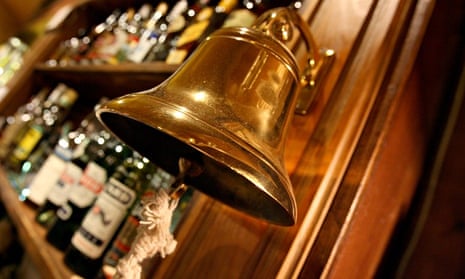People who are convicted of criminal damage or common assault committed under the influence of alcohol could be forced to wear a “sobriety bracelet” for four months, as an alternative to going to prison.
David Cameron has announced that the Conservatives will give judges the power to use alcohol abstinence orders if the party is returned to government next year.
Instead of going to prison, offenders will then be forced to wear an electronic tag, which tests sweat for alcohol, for up to 120 days. The tag is fitted around the ankle and automatically samples the wearer’s perspiration every 30 minutes. Information is transmitted to a base station, where the data is downloaded and checked by officials.
Offender who fail to keep off alcohol could be hit with a fine or, ultimately, a custodial sentence.
US courts already use the bracelets. The actor Lindsay Lohan was famously ordered to wear one after missing a probation hearing following a conviction for drink-driving.
The abstinence orders are already being trialled in London, Cheshire and Northamptonshire after being proposed by Cameron in 2012, but the Tories will pledge in their election manifesto to use them across England and Wales. The first one was handed out at Sutton magistrates court in August to an offender convicted of using abusive language and provoking unlawful violence.
Speaking at the G20 summit in Australia, the prime minister said: “Alcohol-related crime causes misery for millions of people every year and costs our country billions of pounds. While overall crime has fallen under this government, we need to do more.”
Conservative sources said the Home Office envisaged up to 5,000 offenders a year would be ordered to wear the tags, at a cost to the taxpayer of £15m.
They say that abstinence orders in America have reduced reoffending in some states by up to 14%. American courts have ordered the devices to be fitted to thousands of defendants released on bail and awaiting trial for alcohol-related offences, as well as people on probation and underage drinkers.
Judges in the UK would have the discretion to hand down orders for offences such as threatening behaviour, assault, criminal damage and drink-driving. Most offenders will be made to wear the bracelets for 60 to 90 days, with a maximum punishment of 120 days.
The police, led by the Metropolitan police commissioner, Sir Bernard Hogan-Howe, have been pushing for the use of sobriety bracelets, saying it would help cut crime in the capital.
The police commissioner said 80%-90% of night-time arrests by the Met were associated with excessive alcohol.
“It is important for us to use technology and to use these preventative measures around two areas – one around alcohol and certainly around drugs because the two most aggravating factors around crime tend to be those areas,” Hogan-Howe said in December 2011.
“You can literally smell the problem in the air” by walking around police cells at night, he said. “So many of the those being held are drunk. The point is if you can reduce the alcohol intake over time, it may well be that we have got a great benefit we can offer our society and maybe young people.”

Comments (…)
Sign in or create your Guardian account to join the discussion